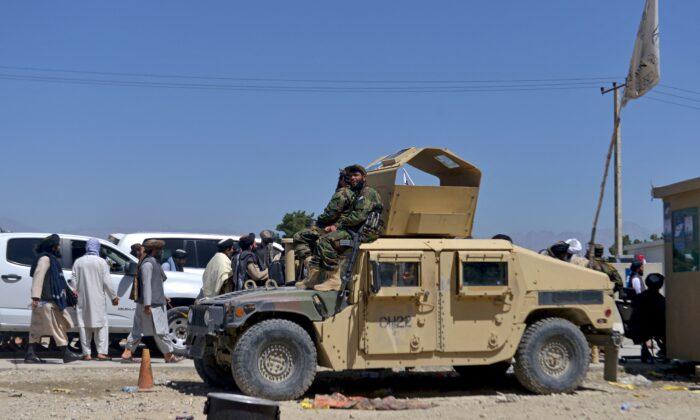The U.S. military failed to properly train, advise, assist, and equip the Afghan military, according to the Pentagon’s watchdog.
This assessment comes as watchdog representatives from the Defense Department, the State Department, the U.S. Agency for International Development, and the Special Inspector General for Afghanistan Reconstruction (SIGAR) testified before the House Oversight Committee on April 19 about the Biden administration’s chaotic withdrawal from Afghanistan in August 2021.
He said that one way, as laid out in a 2017 Pentagon Office of the Inspector General (OIG) report, was through an “insufficient level of training for those advising” the Afghan Ministry of Defense (MoD) as they “delayed progress toward building the internal controls capability of the MoD and its subordinate commands.”
The OIG “evaluation determined the train, advise, and assist efforts needed to focus on [the] further development of inspection planning, executing, and reporting to build the capacity of the Afghan MoD” in order to reach what the OIG said were “transparency, accountability, and oversight milestones.”
Storch noted that the Afghan Air Force (AAF) was incapable of operating without U.S. and coalition support despite the training it had received from those partners.
“An August 2019 evaluation found that this training did not meet operational objectives, which meant that the AAF was not independently capable of coordinating airdrops to resupply Afghan ground forces or undertaking efforts to minimize civilian and ANDSF casualties during targeting operations,” he wrote.
The United States and its allies also did not conduct “adequate oversight of the contracted advisors carrying out the training of Afghan air liaison officers,” according to Storch.
Another way the United States failed the Afghan military was on the equipment front in that there was incomplete recordkeeping of the inventory of vehicles and radios meant for the Afghan army and whether they were delivered to them.
Other issues included corruption and an overreliance on U.S. contractors.
In addition to U.S. and Afghan military incompetence, most of those who helped the United States and its partners during the almost-20-year-old war have yet to receive Special Immigrant Visas (SIV).
Acting State Department Inspector General Diana Shaw told the House Oversight Committee there are more than 152,000 SIV applicants in Afghanistan awaiting approval.
In its report released on April 19, SIGAR wrote, “The U.S. promised to resettle its allies in safety, but the United States is failing.”
According to SIGAR, “as of late September 2022, the United States had only issued visas to approximately 20 percent of SIV applicants,” and ”according to one estimate, at the current pace, it will take 31 years to relocate and resettle all SIV applicants.”




